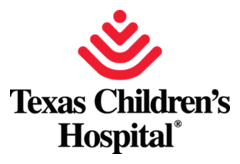Cognitive Distortion
What are Cognitive Distortions?
Cognitive distortions, a concept from Cognitive-Behavioral Therapy (CBT), refer to biased ways of thinking about oneself and the world around us. The model essentially states that there are specific (and common) ways people distort their thinking. These irrational thoughts and beliefs (i.e., distortions) can lead to problematic emotional states and behavior, like anxiety, low self-esteem, depression and relationship conflicts. That’s why you want to be aware of them, so that you can shift your thinking to more rational and objective thoughts whenever possible. More rational thinking tends to lead to more positive emotional and behavioral experiences.
List of Cognitive Distortions
- All-or-Nothing Thinking (or “Black and White” Thinking)
- Overgeneralization
- Filtering
- Disqualifying the positive
- Jumping to conclusions(a) Mind reading(b) Fortune telling
- Magnification and minimization
- Catastrophizing
- Emotional reasoning
- Should statement
- Labeling and mislabeling
- Personalization
- Blaming
- Fallacy of change
- Fallacy of reward
- Fallacy of being right
List of Cognitive Distortions
- All-or-Nothing Thinking (or “Black and White” Thinking)
- Overgeneralization
- Filtering
- Disqualifying the positive
- Jumping to conclusions(a) Mind reading(b) Fortune telling
- Magnification and minimization
- Catastrophizing
- Emotional reasoning
- Should statement
- Labeling and mislabeling
- Personalization
- Blaming
- Fallacy of change
- Fallacy of reward
- Fallacy of being right
If you or someone you love are struggling with Cognitive Distortions or any other mental health issue, LET US HELP. Give us a call at 1-888-98-TODAY. Feel free to fill out the new contact form listed under the Contact Us tab at the top of the Texas Care website for more information on how we can better serve you. It’s quick and confidential.





